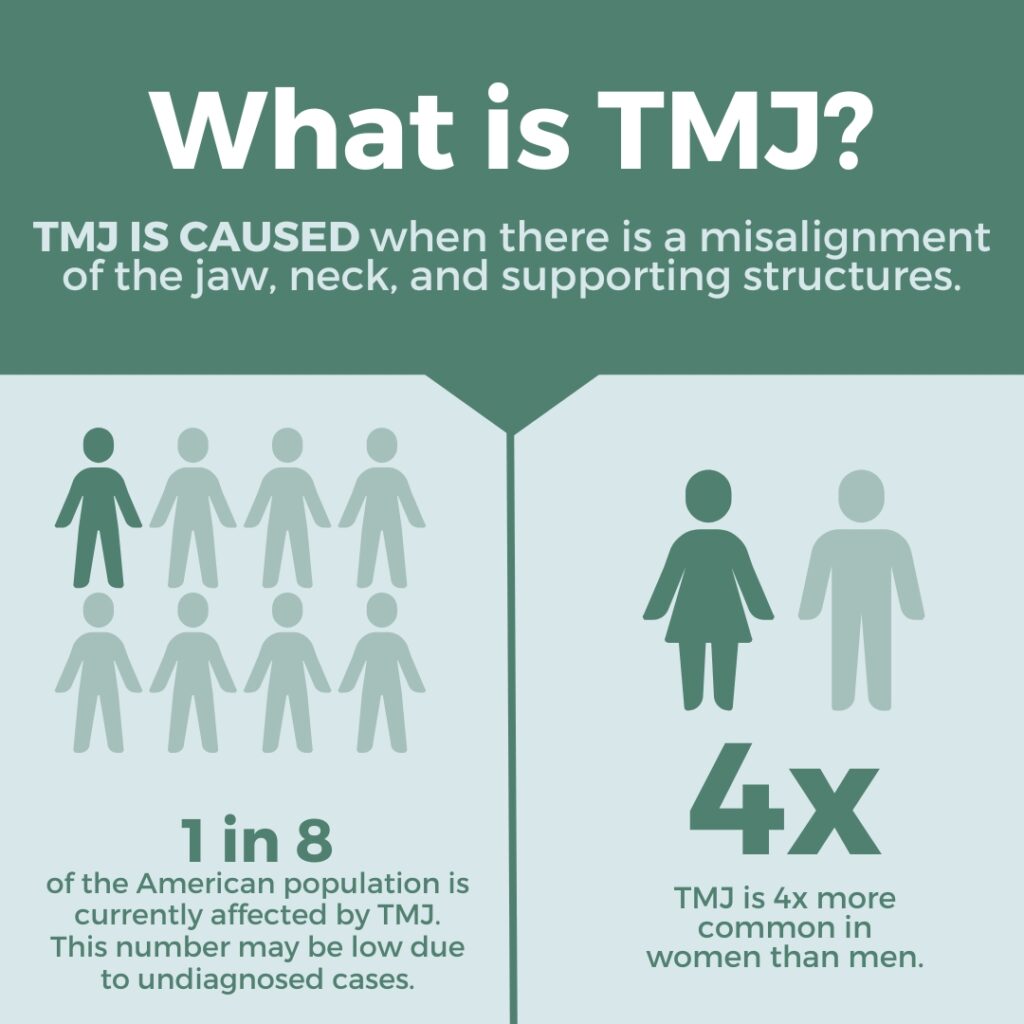Many people suffer with chronic jaw pain or TMJ/TMD without knowing. During TMJ Awareness Month, our Doctors. at Nova Dental Partners want to highlight these issues and ensure our patients understand the symptoms so we can help to improve your quality of life.
The temporomandibular joint (TMJ) is the point where your jawbone (mandible joint) joins your skull (temporal join) which allows you to perform functions such as speaking and chewing. TMJ disorder, often referred to as TMD, includes any issues affecting the joint or surrounding muscles that can cause chronic discomfort and impede on the normal movement of your jaw.

Reasons Why You May Experience TMD
- Misaligned Bite: This can put stress on your jaw if your teeth are not connecting properly
- Teeth Grinding (Bruxism): People who grind or clench their teeth at night can experience joint inflammation and tension around the muscles
- High Stress Lifestyle: If you suffer from high levels of anxiety or stress, this can lead to tension or increased bruxism which can further increase TMJ-related symptoms
- Trauma: If you experience an injury to the jaw area, the damage to your joint can cause TMJ symptoms
- Arthritis: Inflammatory conditions like arthritis can affect the TMJ, causing pain
If you experience any of the above and also have symptoms such as pain, discomfort or tension around your jaw or temples, persistent headaches, difficulty chewing, popping/clicking jaw or ringing in your ears, you may well be experiencing TMD. It’s important to share this information with your dentist. Our dental practices are conveniently located in Fairfax, Woodbridge, and Alexandria to allow easy access for our patients to dental treatment nearby.
Treatment options for TMJ disorders/TMD can vary depending on the severity of your condition. Drs. Kambiz and Kamran Tavakkoli may recommend a variety or combination of treatments. Most will include recommendations for alleviating stress, such as meditation, exercise, and other relaxation techniques. This should help in the longer term. In the short term, they may recommend eating a softer diet or taking anti-inflammatory medications to help with the symptoms. A bite guard will be key to reducing symptoms relating to bruxism, and Invisalign may be recommended if your TMD is due to a misaligned bite. In some severe cases, you may require surgery to help alleviate your symptoms. Our Doctors. will discuss all your options with you, but it’s important to know there is a solution to your discomfort and you don’t need to continue with headaches and soreness — we are here to help. Make an appointment at one of our 5 convenient locations today if you are experiencing any symptoms.
